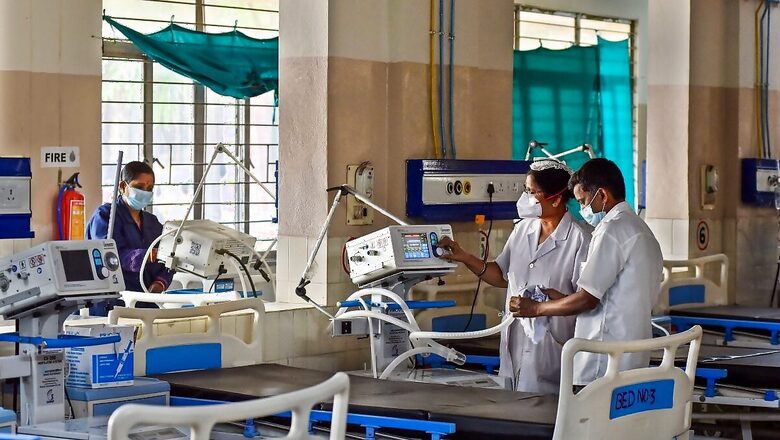
views
Union Budget 2024: The Indian healthcare sector has high expectations for the upcoming budget on July 23rd, 2024. Experts anticipate a significant rise in healthcare spending. Investments in rural healthcare facilities and primary care are also expected to receive a boost
The government might introduce policies to improve the quality and accessibility of essential healthcare services. Lowering the GST on these services is a potential option.
Also Read: Budget 2024 On July 23: Govt Mulls Doubling Ayushman Bharat Beneficiaries, Insurance Amount
Dr Ashutosh Raghuvanshi, MD and CEO, Fortis Healthcare, highlighted that while the interim budget introduced several initiatives, the upcoming budget should prioritise healthcare infrastructure by increasing GDP spending to 2.5%.
“We urge the government to designate healthcare as a national priority and implement transformative measures to establish India as a global healthcare powerhouse,” Raghuvanshi urged.
Key Issues In Healthcare
Raghuvanshi underlined that the healthcare sector currently faces challenges such as a shortage of skilled workforce, indirect taxation issues, and unused Minimum Alternate Tax (MAT) credit.
“To ensure sustained and accelerated growth, policies conducive to private sector investment must be focused upon,” he stressed.
“The government should strengthen public-private partnerships by introducing new models and policies to boost the adoption of digital healthcare services and promote medical value travel. This can be achieved by facilitating international insurance recognition for Indian healthcare providers to attract more international patients,” Raghuvanshi urged.
Diagnostics Sector
The diagnostics sector, vital for early disease detection and treatment customisation, is crucial in India’s growth, said Ameera Shah, Executive Chairperson and Whole Time Director, Metropolis Healthcare.
“We urge the new government to prioritise optimising PPP models to ensure high-quality, positive, and impactful outcomes. Increased funding for screening and diagnostic programs targeting Non-Communicable Diseases (NCDs) such as cancer and cardiac ailments is essential. Investing in training for doctors, nurses, and allied healthcare workers will further elevate the quality of care,” Shah said.
0% GST On Diagnostic Services
Shah demanded that implementing a 0% GST on diagnostic services and facilitating refunds for GST paid on input tax credits can reduce costs and improve accessibility.
Lowering customs duty on imported diagnostic equipment and adjusting high GST rates on lab supplies will enhance efficiencies and foster R&D investments, he added.
“These measures will significantly contribute to our shared goal of providing accessible, high-quality healthcare for all. We look forward to collaborating with the government to address these priorities and ensure the continued growth and improvement of India’s healthcare sector,” Shah noted.
Increase Healthcare Spending
Dr Sabine Kapasi, Gynecologist, Co-Founder and MD at Enira Consulting, and Global strategy lead at United Nations Emergency Response, UNDAC, too highlighted that healthcare sector stakeholders are calling for significant reforms.
“They suggest increasing healthcare spending to 3% of GDP, improving infrastructure in rural and underserved areas, and strengthening preventive healthcare. Addressing the shortage of healthcare workers through better training and working conditions is also essential,” Kapasi urged.
Health Insurance Ambit
Kapasi also highlighted the need of expanding health insurance coverage, adopting advanced technologies like telemedicine and digital health records, and complying with the India Digital Personal Data Protection Act of 2023
The focus on emerging technologies such as AI and Machine Learning in the interim budget highlights the push for modernisation in the sector, she added.
Incentives For R&D, Local Manufacturing
In terms of tax policy, Kapasi said it is important to incentivise local manufacturing and R&D activities.
“Providing clarity on GST for business expenses and aligning rates for pharmaceutical ingredients are crucial for operational efficiency. Simplifying regulations and offering incentives for innovation and skill development can strengthen India’s healthcare capabilities and competitiveness,” Kapasi urged.
Kapasi added that by investing in infrastructure, technology, human resources, and clear regulations, the government can improve public health outcomes and support the growth of the pharmaceutical sector. Meeting these goals will be a significant step towards a healthier and more prosperous India.




















Comments
0 comment